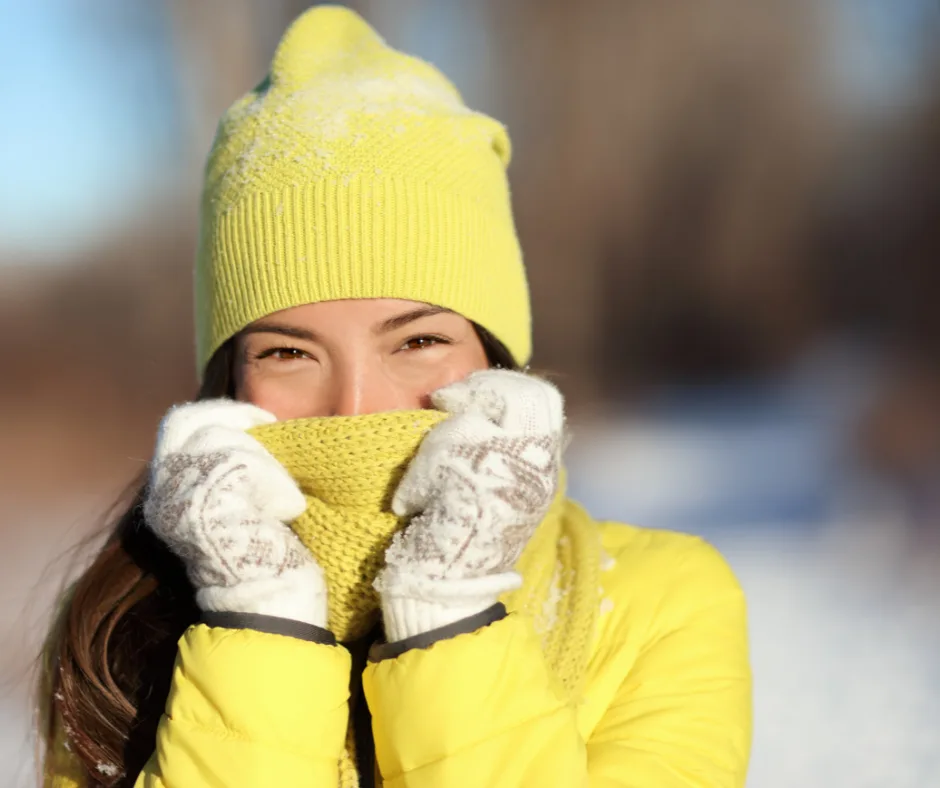As temperatures drop and the air becomes drier, your skin faces unique challenges that can leave it feeling rough, tight, or flaky. Winter is the time to nurture and protect your skin from the harsh elements while maintaining a radiant, healthy glow. Here are essential tips and product recommendations to keep your skin hydrated, nourished, and thriving all season long.
1. Prioritize Hydration
Cold air and indoor heating strip moisture from your skin, making hydration a top priority.
- Use a Hydrating Cleanser: Switch to a gentle, hydrating cleanser that cleans without over-drying. Look for ingredients like hyaluronic acid or ceramides.
- Product Pick: CeraVe Hydrating Cleanser or La Roche-Posay Toleriane Hydrating Gentle Cleanser.
- Apply a Humectant Serum: Before moisturizing, use a serum with hyaluronic acid to lock in moisture.
- Product Pick: The Ordinary Hyaluronic Acid 2% + B5.
2. Don’t Skip Sunscreen
Yes, even in winter, UV rays can damage your skin. Snow reflects up to 80% of UV rays, increasing your exposure.
- Choose a Broad-Spectrum Sunscreen: Apply SPF 30 or higher daily.
- Product Pick: EltaMD UV Clear Broad-Spectrum SPF 46.
3. Protect Your Skin Barrier
A compromised skin barrier leads to increased dryness and sensitivity. Focus on replenishing and strengthening it.
- Use a Rich Moisturizer: Switch to a thicker cream to provide an additional protective layer.
- Product Pick: Cetaphil Rich Hydrating Cream or First Aid Beauty Ultra Repair Cream.
- Avoid Harsh Exfoliation: Use gentle chemical exfoliants like lactic acid instead of harsh scrubs.
- Product Pick: Paula’s Choice 10% AHA Exfoliant.
4. Add Nourishing Oils
Facial oils seal in hydration and provide a barrier against harsh winds.
- Layer Oils Wisely: Apply oils after your moisturizer for maximum hydration.
- Product Pick: Rosehip Seed Oil by The Ordinary or Biossance Squalane + Vitamin C Rose Oil.
5. Don’t Neglect Your Lips
Lips are especially prone to cracking and dryness in cold weather.
- Use a Lip Balm Regularly: Look for ingredients like beeswax, shea butter, or lanolin.
- Product Pick: Laneige Lip Sleeping Mask or Burt’s Bees Lip Balm.
6. Focus on Hands and Feet
These areas often get overlooked but are the first to show signs of dryness.
- Invest in Thick Hand Creams and Foot Balms: Apply before bed for overnight repair.
- Product Pick: Neutrogena Norwegian Formula Hand Cream or O’Keeffe’s Healthy Feet.
7. Keep Showers Short and Warm
Hot showers can strip your skin of natural oils, leading to dryness.
- Use Lukewarm Water: Opt for warm—not hot—water and limit shower time to 10 minutes.
- Apply Moisturizer Post-Shower: Lock in moisture immediately after towel-drying.
8. Consider a Humidifier
Combat dry indoor air by using a humidifier, especially in your bedroom. This keeps your skin hydrated overnight.
- Pick the Right Humidifier: Opt for a cool mist model for safe, effective hydration.
9. Stay Hydrated from Within
Drink plenty of water throughout the day to support your skin’s natural moisture balance. Herbal teas are a cozy way to increase hydration in winter.
10. Use Masks for Extra Care
Boost hydration and soothe dry skin with weekly hydrating masks.
- Opt for Sheet Masks or Overnight Masks: Choose masks with hyaluronic acid or aloe vera for a refreshing boost.
- Product Pick: Dr. Jart+ Ceramidin Skin Barrier Moisturizing Mask or Glow Recipe Watermelon Glow Sleeping Mask.
Final Thoughts
Winter skincare doesn’t have to be complicated—just a few thoughtful adjustments can make a world of difference. By hydrating, protecting, and nurturing your skin, you can combat dryness and maintain a radiant glow even in the coldest months. Take the time to care for your skin, and it will reward you with comfort and confidence all winter long

